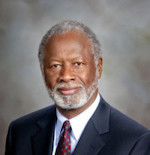Two Ohio cities claimed the legislature’s oversight of traffic camera revenue was against their right to self-govern, but the Ohio Supreme Court has disagreed.
East Cleveland and Newburgh Heights both use traffic cameras to catch violations, and say they are protected by the Home Rule Amendment, a measure that gives municipalities the ability to self-govern on certain issues.
While the Supreme Court said Home Rule allows the Ohio cities and villages to levy taxes and obtain revenue through sources such as traffic-camera fines, that doesn’t mean they can’t have state funding reduced based on the amount they receive from traffic violations.
“Municipalities remain free in the sphere of local self-government to use traffic cameras, and the General Assembly does not encroach on municipal power by setting its own funding priorities and providing for the maintenance of state courts,” wrote Justice Sharon Kennedy, on behalf of the supreme court.
The court ruled last week that a “spending setoff,” which lowers the amount of state funding those municipalities receive based on the amount of traffic-camera fines they collect, is within constitutional bounds.
The setoff does not, however, bar cities from enforcing traffic laws. It acts as a potential financial discouragement from using the cameras, Kennedy wrote.
“The setoff provision does not restrict municipalities from enacting or enforcing local laws, nor does it preempt or invalidate those laws,” the supreme court ruled. “Therefore, there is no conflict between the spending setoff and municipalities’ ordinances adopting the use of cameras to enforce traffic laws.”
In the same way, the court found a requirement by the state for municipalities with traffic cameras to pay an advance deposit to cover court costs and fees for traffic violations charged using the cameras does not violate Home Rule.
“The deposit requirement may make litigating violations based on traffic cameras more expensive for municipalities,” the court ruled. “Nonetheless, (it) does not conflict with local law, because it does not prohibit municipalities from using cameras to enforce their traffic laws.”
• • •• • •
This story is provided by Ohio Capital Journal, a part of States Newsroom, a national 501 (c)(3) nonprofit. See the original story here.














